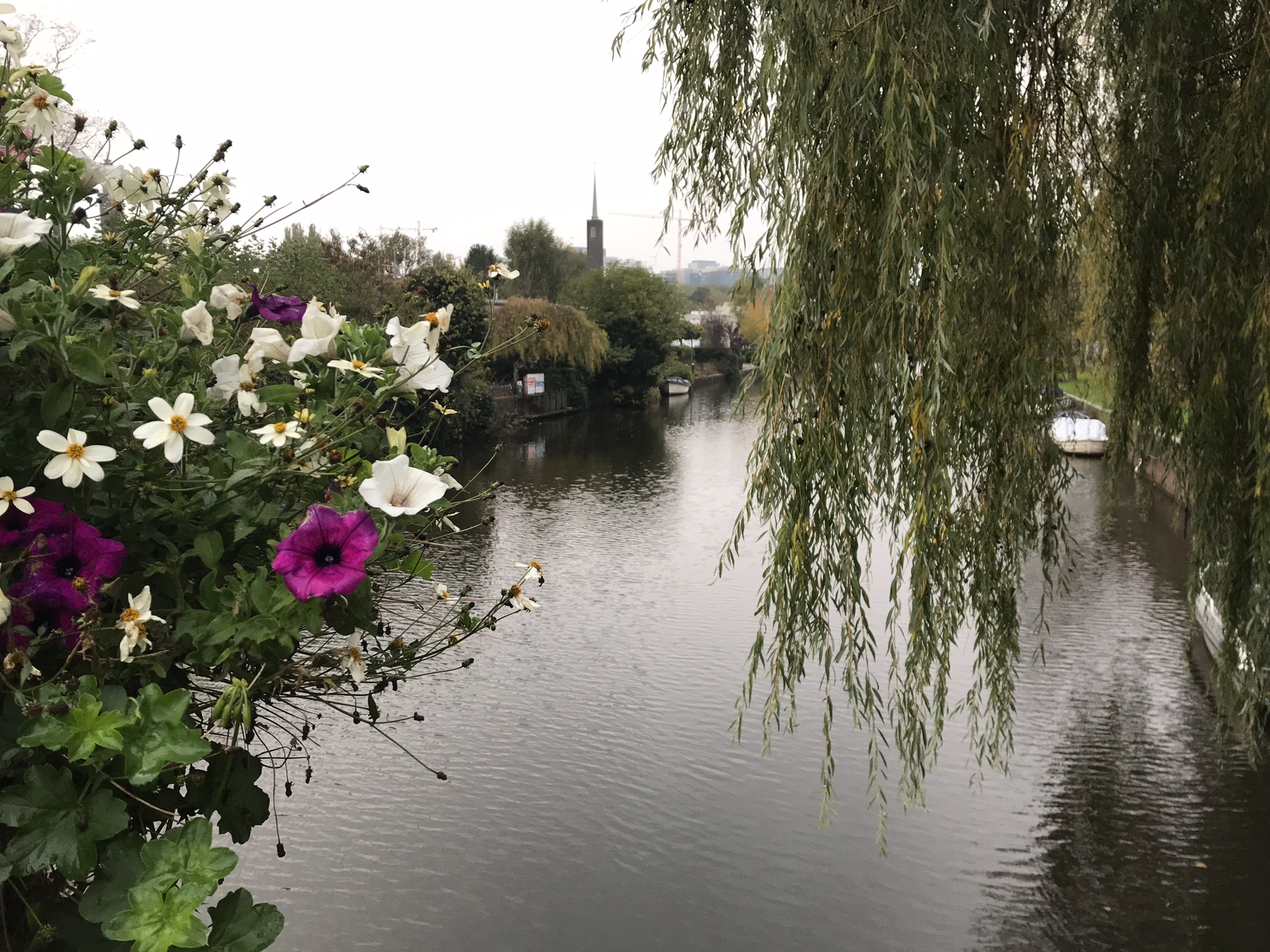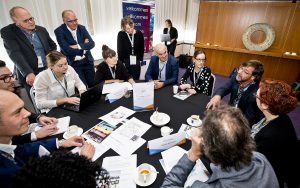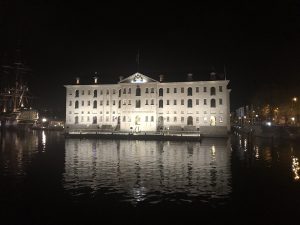
November 27, 2019, by lzzeb
Amsterdam International Water Week Conference 2019
A blog by Dr Emily O’Donnell
The Amsterdam International Water Week (AIWW) brings together leaders from government, the private sector and academia to explore a new era of sustainable water management. It is a global movement committed to a future in which a circular and sustainable water environment is achieved. One of the core topic areas this year was ‘Blue-green solutions for urban resilience’, which aligns with my research on Blue-Green Cities and Urban Flood Resilience.
On 4th November 2019 I attended the AIWW Conference and participated in the Resilient Cities Leaders Forum on the Water Sensitive Futures table. We shared experiences of water sensitive urban design and Blue-Green Infrastructure (e.g. swales, rain gardens, green roofs, restored river channels) being used to manage flood risk, enhance the environment and improve quality of life. I learned a lot about approaches in Denmark, Australia, New Zealand and the Netherlands. I also shared ongoing research as part of a British Academy project on Tackling the UK’s International Challenges (‘Blue-Green Futures’). This project investigates how socio-political barriers to the implementation of Blue-Green infrastructure have been overcome in four international cities (Newcastle, UK; Ningbo, China; Rotterdam, Netherlands; and Portland, Oregon USA).

Resilient City Leaders Forum discussions on Table 9, City of Vejle (Denmark): Developing water sensitive futures (photo credit: Guus Schoonewille).
The conference featured an array of inspiring speakers who were passionate about global cooperation to achieve the Sustainable Development Goals (SDGs) and to create sustainable solutions across water, waste, urban development, energy and finance. Henk Ovink, Special Envoy for International Water Affairs, delivered one of the opening keynotes that set the tone for the conference: that water is central to the climate crisis and central to the delivery of the SDGs; that business as usual is not enough, and in fact, business as usual is lethal. There is no silver bullet to address global water challenges but collaboration with all stakeholder groups is essential, as is the combination of long-term planning and short term action. The solutions to global water challenges are not easy but the will to make the changes needed has to be present, and this is something that is lacking in many countries. What was echoed many times throughout the day was the need for action.
While it is essential to continue scientific research and keep developing innovative solutions to mitigate risk and improve peoples’ quality of life, there has to be action and a commitment to making changes, even if the economic cost is high. As echoed by David Nabarro, Former UN special adviser on the 2030 Agenda for Sustainable Development, we cannot wait for another disaster to happen.
AIWW 2019 was officially opened in a late afternoon ceremony by a video message from Ban Ki-moon, former Secretary-General of the United Nations, and leader of the Global Commission on Adaptation, who reiterated the need for action on climate change. My day finished with a networking cruise along Amsterdam’s canals to the conference dinner at the Het Scheepvaart (the national maritime museum), which was a fantastic way to end an inspiring and memorable experience at the AIWW. Many thanks to the School of Geography and Urban Flood Resilience research project for supporting my attendance and participation.
No comments yet, fill out a comment to be the first


Leave a Reply